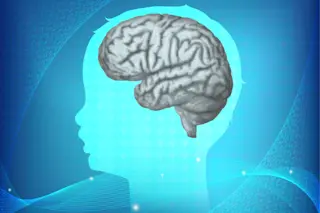Our brains, like everything else about our bodies, change as we age. But the changes that happen to the Alzheimer’s brain are not part of the normal aging process. Researchers have struggled to understand the underlying mechanisms that lead some people to develop Alzheimer’s. Now a new study published in Science has linked poor sleep to an abnormal build-up of an Alzheimer’s-promoting protein in the brain.
The telltale pathological signs of Alzheimer’s disease are high levels of beta-amyloid and tau proteins clumped together in the brain. Researchers have long known that beta-amyloid’s sticky plaques kill nerve cells, which compromises a person’s ability to remember and carry out everyday tasks. But in recent years, tau has emerged as a key driver of neurodegeneration. Previous studies have linked sleep deprivation to increased levels of beta-amyloid. But a new study shows that just one night of tossing and turning can also elevate a ...












